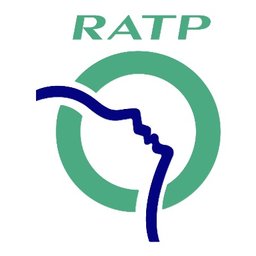Workday And Ratp Dev

Ratp Dev Usa Jobs Careers Jobbio Hello. what is the difference between "workday" and "work day"? why do some people write "workday", others — "work day"?. A workday or work day is a day on which you work: monday to friday, normally. a working day could be the same as that, but is perhaps more often used for the hours of the day you're at work. if something happens during the working day, it happens between 9 and 5.30 or whenever. my working day was busy yesterday.

Ratp Dev Linkedin Hello, what's the difference between "working days" and "weekdays"? is the second one used more frequently than the first? (in the examples like "the centre is open on working days weekdays"). According to a few dictionaries i've consulted, a "weekday" is any day of the week except (saturday and) sunday. so, if next monday is a public holiday, it's still a "weekday". now, the following is from the mad (mechanical art & design) museum. admission: £7.80 opening times: offer times. In be: 1. did you finish your homework at some time in the past, e.g. did you finish your homework yesterday? 2. have you finished your homework now. this is the correct answer. 3. are you finished with your homework = do you want to continue it or have you done enough for the moment?. For a cv work experience or employment history? which one is the best and why? is there any subtle difference between them? thanks a lot in advance. :).

Ratp Dev Usa Address Data More In be: 1. did you finish your homework at some time in the past, e.g. did you finish your homework yesterday? 2. have you finished your homework now. this is the correct answer. 3. are you finished with your homework = do you want to continue it or have you done enough for the moment?. For a cv work experience or employment history? which one is the best and why? is there any subtle difference between them? thanks a lot in advance. :). Jour ouvré in ae is business day, vs jour ouvrable, workday the other thread gives the example of receiving a ticket after x jours ouvrés (càd sans compter les samedis, dimanches ou autres jours fériés). What's the difference between the phrases below? in which cases we can use them? have experience doing something have experience with have experience in i just confused about the collocations with have for job qualifications.:confused: any helps appreciated!. As a speaker of american english, i agree with your american informant. to me, 'haven't got' is equivalent to 'don't have' and is used for talking about the present. (generally, teachers, for instance, will correct 'haven't got ' to 'don't have'. 'haven't got' is regarded as colloquial or informal.) for a statement about the past, i would say, "i haven't gotten" or "i haven't had" with. Thanks in advance for your help! management employees to leave work early if they arrive before the start of the workday. (a)permits (b)grants (c)lets (d)consents question: all of the options are related to agreeing or allowing something. why a is the answer? thanks again! to permit > to consent to, to give permission, to allow to.

Ratp Dev Manages Growth With Cloud Based Planning Workday Us Jour ouvré in ae is business day, vs jour ouvrable, workday the other thread gives the example of receiving a ticket after x jours ouvrés (càd sans compter les samedis, dimanches ou autres jours fériés). What's the difference between the phrases below? in which cases we can use them? have experience doing something have experience with have experience in i just confused about the collocations with have for job qualifications.:confused: any helps appreciated!. As a speaker of american english, i agree with your american informant. to me, 'haven't got' is equivalent to 'don't have' and is used for talking about the present. (generally, teachers, for instance, will correct 'haven't got ' to 'don't have'. 'haven't got' is regarded as colloquial or informal.) for a statement about the past, i would say, "i haven't gotten" or "i haven't had" with. Thanks in advance for your help! management employees to leave work early if they arrive before the start of the workday. (a)permits (b)grants (c)lets (d)consents question: all of the options are related to agreeing or allowing something. why a is the answer? thanks again! to permit > to consent to, to give permission, to allow to.

Ratp Dev Ratp Group As a speaker of american english, i agree with your american informant. to me, 'haven't got' is equivalent to 'don't have' and is used for talking about the present. (generally, teachers, for instance, will correct 'haven't got ' to 'don't have'. 'haven't got' is regarded as colloquial or informal.) for a statement about the past, i would say, "i haven't gotten" or "i haven't had" with. Thanks in advance for your help! management employees to leave work early if they arrive before the start of the workday. (a)permits (b)grants (c)lets (d)consents question: all of the options are related to agreeing or allowing something. why a is the answer? thanks again! to permit > to consent to, to give permission, to allow to.
Comments are closed.